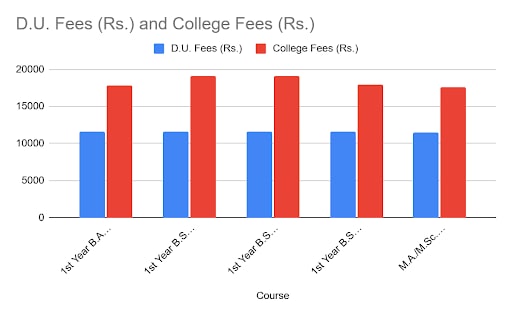© IE Online Media Services Pvt Ltd
Latest Comment
Post Comment
Read Comments
 This move by the College not only breaches Delhi University's one-portal payment policy but also compels students to pay over three times the university’s actual fee share.(Source: Wikimedia Commons)
This move by the College not only breaches Delhi University's one-portal payment policy but also compels students to pay over three times the university’s actual fee share.(Source: Wikimedia Commons)St Stephen’s College has stirred controversy by introducing a dual-payment system for first-year students, requiring separate payments for university and college fees. This move by the College not only breaches Delhi University’s one-portal payment policy but also compels students to pay over three times the university’s actual fee share.
As per St. Stephen’s College’s 2025–26 fee notice, first-year students are being charged between Rs 11,551 and Rs 11,630 as the Delhi University (DU) component of their fees—over three times the university’s actual annual share of Rs 3,500.
This results in an excess payment of more than Rs 8,000 per student, marking a steep 230 per cent increase. With around 400 new students enrolled, the total overcharge amounts to approximately Rs 32 lakh. For students with disabilities (PwD), the college listed the DU fee as Rs 1,150, compared to the official Rs 875—an overage of 31 per cent.
 This fee structure graph is only for general students.
This fee structure graph is only for general students.
Additionally, students were directed to pay the Delhi University fee through the university’s official portal, while the college fee—ranging from Rs 17,500 to Rs 19,000 per semester—was to be paid separately after enrollment. As a result, the overall cost for a BA or BSc programme at the college amounts to approximately Rs 30,000 per semester.
This move unfolds against the backdrop of ongoing tensions between Delhi University and St Stephen’s College over issues of administrative autonomy and compliance with university regulations. In recent years, the college has consistently asserted its independence in shaping internal policies—most notably by conducting its own admission interviews, a practice that has sparked debate and drawn scrutiny.
Meanwhile, DU has issued a new advisory for “safe, smooth and orderly conduct of events and gatherings”. Police being intimated in advance about an event, appointment of a liaison officer, proper management of crowd, installation of CCTV cameras, arrangements made in case of emergencies and enhanced deployment of private security personnel — these are part of a new advisory
According to DU, this is in continuation of a detailed 2023 standard operating procedure (SOP) issued by the Delhi Police following a 2023 Delhi High Court order in a matter of security lapses faced during annual fests, causing injuries and trauma to attending students.